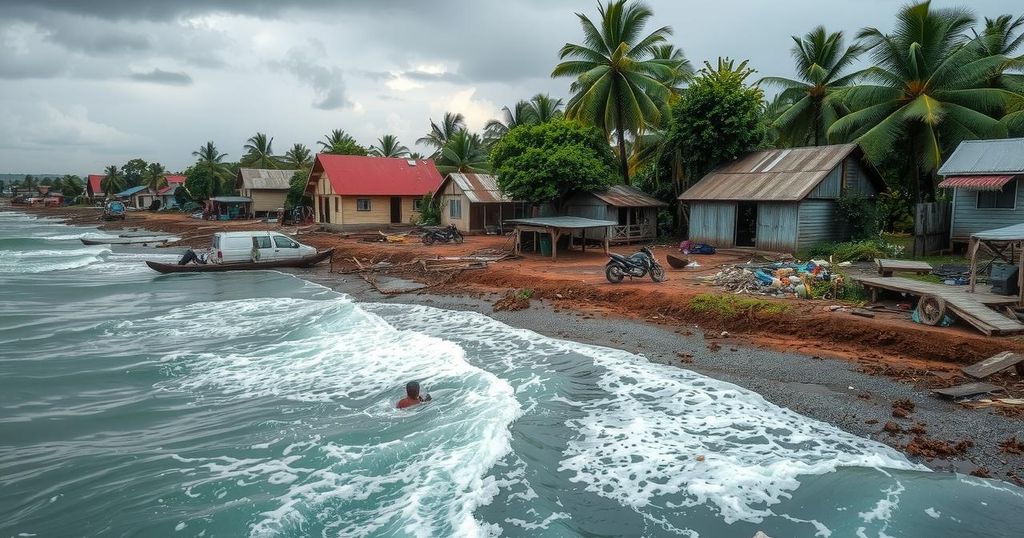Climate change
Global news
AFRICA, ALEXIS DUCLOS, CABO DELGADO, CHI, CLIMATE CHANGE, EMERGENCY RESPONSE, ESTE, ESTELLE YOUSSOUFFA, EUROPE, FLASH INFOS, FRANCE, FRANCE INTER, MALAWI, NATIONAL INSTITUTE OF RISK AND DISASTER MANAGEMENT, NATURAL DISASTER, NATURAL DISASTERS, UNITED NATIONS
Fatima Khan
0 Comments
Devastation in Mayotte: Cyclone Chido Leaves Thousands Dead and Places Lives at Risk
Cyclone Chido has caused extensive destruction in Mayotte and south-eastern Africa, with a rising death toll of 22 confirmed and thousands presumed dead. Mozambique and Malawi report significant casualties, with urgent humanitarian needs emerging amidst power outages and fears of disease. The cyclone has heightened concerns for future storms as the cyclone season begins, prompting calls for immediate relief efforts.
Cyclone Chido has wreaked havoc in the French territory of Mayotte and parts of south-eastern Africa, causing extensive destruction and loss of life. The cyclone has left tens of thousands presumed dead, with 22 confirmed fatalities and over 1,400 injuries in Mayotte alone. Search and rescue efforts are ongoing, hampered by severe power and water outages. In Mozambique, the death toll has reached 45, with approximately 500 individuals injured, while Malawi has reported a rise in fatalities from seven to thirteen. Many of the victims include undocumented migrants who cannot access shelters due to fear.
The cyclone has devastated the Cabo Delgado province in northern Mozambique, destroying over 35,000 homes and impacting 90,000 children as the region faces a humanitarian crisis. Communication barriers complicate ongoing search and rescue efforts, raising concerns regarding looting and the spread of disease amid the decomposing bodies in the streets. Local officials, including Mamoudzou Mayor Ambdilwahedou Soumaila, stress the immediate need for food and clean water to address the escalating humanitarian needs. With the cyclone season just beginning, residents are anxious about the potential for further storms, aggravated by the effects of climate change in the region.
The article addresses the aftermath of Cyclone Chido, which has significantly impacted the French territory of Mayotte and south-eastern Africa. It highlights the death toll, ongoing rescue missions, and the differentiation in the effects experienced across different regions like Mozambique and Malawi. Additionally, it discusses the pressing humanitarian issues, such as lack of food and water, potential disease outbreaks, and the sociopolitical dynamics of undocumented migrants in the affected areas. The context emphasizes the urgency of addressing both immediate and long-term needs as the cyclone season continues.
In summary, Cyclone Chido has resulted in grave humanitarian consequences in Mayotte and south-eastern Africa, with government and local authorities expressing urgent needs for food, water, and health services. With tens of thousands presumed dead and many displaced, the region is entering a critical phase as recovery efforts grapple with the compounding challenges posed by climate change and infrastructural devastation. Immediate action is necessary to alleviate suffering and prevent further tragedies as the cyclone season remains ongoing.
Original Source: www.thetravel.com




Post Comment